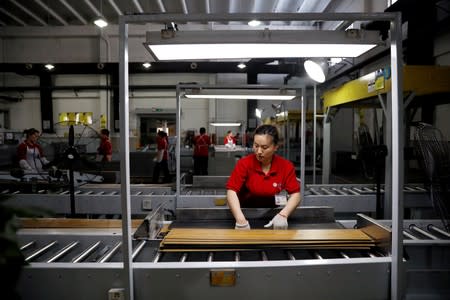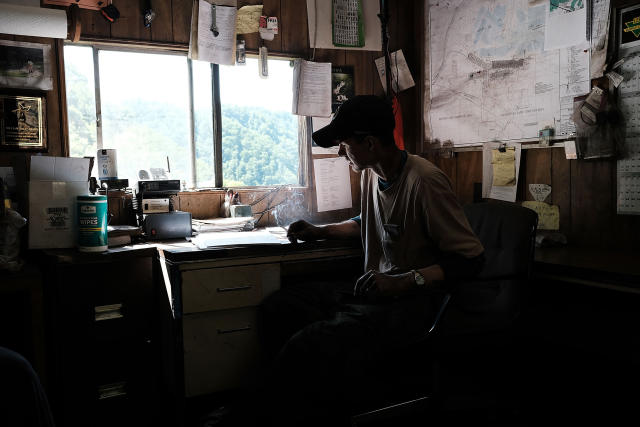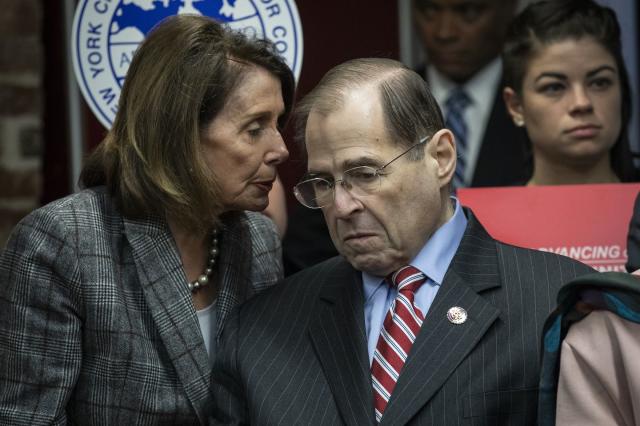These are all examples of lunch shaming, a practice that may vary depending on the context, but which has persisted for years. Outcry about the issue has grown louder since the Great Recession, when a number of school districts found themselves in a financial crunch and began using punitive measures to settle meal debt.
“States have described a point in which school lunch programs needed to start standing independently as a ‘business unit,’” said Jessica Webster, staff attorney of the Mid-Minnesota Legal Aid Legal Services Advocacy Project. “They couldn’t run in the red anymore because districts could no longer cover the debt. So, we saw a surge in a la carte foods and competitive foods like pop, candy, and Taco Bell to cover those debts. But when parents started asking for bans on these competitive, unhealthy foods, school lunch programs could no longer cover the shortfalls.”
The result has been lunch programs across the country making headlines with a variety of lunch shaming practices, which in turn has led to a movement largely focused on fundraising and legislation as remedies. While many Americans remain unaware of this problem, when stories of lunch shaming hit the headlines or go viral, people have begun to spring into action.
For example, when Warwick Schools in Rhode Island announced earlier this month that children with delinquent lunch tabs would be served cold sun-butter and jelly sandwiches (with veggies, fruit, and milk) instead of hot menu items, it sparked a fierce backlash. In just one week, the public raised the $77,000 needed to wipe out the lunch debt Warwick had accrued. To date, two GoFundMe campaigns and Chobani Yogurt CEO Hamdi Ulukaya have raised more than $150,000 to clear Warwick’s student lunch debt and then some, but this development by no means provides a meaningful solution to the student lunch debt that’s ballooning across the country.
Some states are seeing school lunch debt soar into the millions of dollars, but the exact amount of lunch debt schools nationwide have accumulated collectively isn’t known because the U.S. Department of Agriculture doesn’t collect or provide that data. As an issue that disproportionately involves marginalized families—those in poverty, living paycheck to paycheck, or even undocumented immigrants afraid to participate in the federal free lunch program—lunch debt magnifies the widespread economic and structural inequities that have historically existed in the U.S. It also has a very real effect on children—whether causing them go hungry (since school meals are the only meals some children eat in a day), hurting their self-esteem, or both.
The acts of shaming that accompany lunch debt may be hard for children to shake, according to Bettina Elias Siegel, a Civil Eats contributor and author of the forthcoming book, “Kid Food: The Challenge of Feeding Children in a Highly Processed World.”
“Children are so aware of differences between kids—whether it’s socioeconomic, popularity, or whatever—that when you engage in any practice expressly meant to set them apart, kids feel that keenly,” Siegel said. “The stigma is real; it’s a really unfortunate tactic.”
She added that lunch shaming also exacerbates existing socioeconomic differences in school cafeterias in which more privileged students can buy a la carte items while their less privileged peers eat standard lunches.
Various states and school districts have taken measures in recent years to do away with lunch shaming policies that saw youth with past-due lunch accounts relegated to eating cold snacks or nothing at all. In some cases, students performed cafeteria chores to work off their debts or had to wear stickers or hand stamps that called out their past-due account status. As state legislation and other protections have been put into place to avoid shaming students, lunch debt continues to grow, and schools may still take punitive measures against families to resolve these bills—from sending debt collectors after them to threatening to stop students from graduating.
Student lunch debt carries consequences that may extend well beyond a child’s K-12 education. To adequately address this issue, student advocacy and anti-poverty groups say schools must improve how they communicate with parents, families need to be better educated about children’s options for lunch, and Congress may need to pass federal legislation. Donations to erase lunch debt, however, remain a quick fix to a complex and ongoing problem.
“I wish we could channel all that fundraising into a broader effort to advocate at the national level for [universal] free lunch.” Siegel said. “We supply books for children. We provide buses to get them to school. By the same token, we should be supplying kids a free lunch.”
Lunch Debt Is Growing, But Donations Aren’t a Solution
In 2017, Denver Public Schools made a widely applauded announcement: It would no longer deny hot meals to students with negative meal balances. But its goal to make sure that none of the 92,000 children in the district was left eating a cheese sandwich or graham crackers and milk—its previous policy for students with unpaid lunch bills—faced an unexpected drawback. School lunch debt in Denver shot up from $13,000 during the 2016-17 school year to $356,000 the next.
After the passage of a 2017 anti-lunch shaming bill that requires cafeteria staff to feed all students, Oregon schools have experienced a similarly exponential growth in lunch debt. The law also prevents school workers from asking children to pay for food. By the end of 2018, more than three dozen districts in the state had racked up $1.3 million in unpaid balances.
Rising lunch debt isn’t unique to Oregon or Denver, however. According to the School Nutrition Association, a nonprofit that represents student meal providers, school lunch debt is widespread across the country. Its 2018 School Nutrition Operations Report found that 75.3 percent of school districts had unpaid meal debt at the end of the 2016-17 school year, up 4 percentage points from four years earlier.
The rise has occurred during a period in which states including New York, Iowa, New Mexico, California, Minnesota and Texas have enacted legislation to crack down on lunch shaming, and do-gooders have collected money to help school districts clear student lunch debt. A fundraising campaign and a private donation wiped out Denver Public Schools’ $13,000 lunch debt from the 2016-17 school year. More recently, community members in Wisconsin, Minnesota and Michigan rallied to cover student’s unpaid lunch bills during the 2018 holiday season.
And just in time for 2019’s commencement ceremonies, the Philando Castile Relief Foundation made an $8,000 donation to erase the lunch debt of students at Robbinsdale Cooper High School in suburban Minneapolis. Castile, a Black man whose 2016 killing by police in Falcon Heights, Minnesota, sparked nationwide protests, was a cafeteria supervisor at a Minnesota Montessori school. He routinely paid for lunch for students with overdrawn meal accounts, and the foundation named after him continues that legacy.
Students are also on a mission to solve the problem of lunch debt in schools. Last December, an Orlando, Florida, fifth-grader donated $100 of his earnings to pay for unpaid lunch bills at his elementary school. In 2017, Palm Beach County high school student Christian Cordon-Cano started the nonprofit School Lunch Fairy to cover student meals all over the country. So far, he has raised more than $72,000 for that purpose. He told Civil Eats that he got the idea for his nonprofit after listening to a radio broadcast about lunch debt.
“I went to a private Christian school and lunch shaming had never crossed my mind,” said Cordon-Cano, now a college freshman. “I was so shocked that I thought I had to do something about lunch sharing. Every kid deserves a good lunch, so to me, to embarrass them, it’s very sad.”
The School Lunch Fairy website takes donations from members of the public who want to help schools get rid of lunch debt. But Cordon-Cano said that some schools have turned down his organization’s efforts to clear their meal debt.
“Some districts didn’t want help, but they would never give reasons,” he said. “I think the amount of debt they were in embarrassed a lot of them.”
Warwick Schools in Rhode Island reportedly turned down a $4,000 donation from a local restaurant owner because the donation would only cover a fraction of the total amount of lunch bills due. In a statement, the district said it was grateful for the financial support but needed to figure out a way to determine which students’ bills to pay. “We are working with our attorneys to ensure that we accept donations in compliance with the law and that the donations are applied in an equitable manner.”
In 2017, Texas State Rep. Helen Giddings, the lawmaker behind anti-lunch shaming legislation that requires schools to grant students a grace period before giving them a meal alternative and to contact parents when a child’s meal account is depleted, partnered with Austin nonprofit Feeding Texas, a state network of food banks, to raise more than $216,000 to cover unpaid lunch bills.
“It’s obviously just a stopgap, a band-aid on a bigger problem. Kids not having food to eat—that’s not a problem that can be solved locally with a GoFundMe campaign,” said Feeding Texas CEO Celia Cole. “We raised the money to be able to make grants to school districts, to incentivize them to make better policies, but it wasn’t a permanent solution, and we weren’t in a position to fundraise year after year.”
Feeding Texas is working with the state’s Department of Agriculture to survey districts about why they’ve accumulated student lunch debt in hopes of finding remedies, especially making free lunch accessible to the families who qualify for it.
“The process of connecting students to meals isn’t perfect,” Cole said. “We’re a very big and very diverse state, so there isn’t an immediate policy fix. We’re not discouraging people from fundraising, and we see the outpouring when people hear about student lunch debt, but it’s not a long-term fix.”
Improving Communication Between Schools and Families
Lunch debt can be reduced, in part, by making sure that parents know the options available to them. At least some of the lunch debt that schools incur stems from families who qualify for free and reduced lunch, which is paid for by the federal government, but don’t sign up for the program. They may find the paperwork too confusing, only register one of their children, or forget to reapply annually, school nutrition advocates say. Language barriers may also get in the way, and undocumented families may be too fearful to fill out any paperwork at all.
Students from households where the total income falls below $32,630 annually for a family of four—qualify for free lunch. (A family of four earning under $46,435 is eligible for a reduced-price meal.) However, when families who do qualify for free and reduced lunch meals finally sign up for the federal program, any lunch debt they accrued beforehand doesn’t disappear.
“The really unfortunate thing about all of this is that the federal government prohibits schools to use federal funds for any unpaid meal debt,” explained Diane Pratt-Heavner, a spokesperson for the School Nutrition Association. “The free meal program relies solely on federal reimbursement. There is no funding for students who aren’t enrolled [but eligible to be] in the free-and-reduced lunch program.”
That’s why it’s imperative that school districts don’t wait until a family is significantly behind on their payments to take action. Signing up parents early and annually prevents lunch debt from ballooning. In some cases, families who qualify for the reduced portion of the program still struggle. This has led some children’s advocates to recommend doing away with the reduced category altogether.
“At the reduced price, families might pay 40 cents for lunch,” said Crystal FitzSimons, director of school and out-of-school time programs for the Food Research & Action Center. The average school lunch costs about $3.20. “That may not seem like a lot of money to cover, but it can add up.”
Families who qualify for reduced meals but not free ones aren’t as likely to participate in the federal meal program at all, FitzSimons said. Offering these families free meals could lower schools’ lunch debt burden.
Sometimes schools don’t take advantage of the options available to them, such as the federal community eligibility provision. This allows schools that serve mostly low-income youth to provide free meals to each student without the need for families to provide paperwork. During the 2016-2017 school year, 9.7 million students ate free school meals through the provision, but only about 55 percent of schools that qualified to receive it participated. The nation’s biggest city, New York, stands out for offering free meals to all students.
“Advocating for universal free meals in high-poverty areas—that’s the solution,” said Pratt-Heavner of school lunch debt. “If the federal government realizes it, along with the school districts, they should be able to make sure kids get these meals.”
Anti-Lunch Shaming Laws Don’t End Punitive Practices
Students who live in states that have passed anti-lunch shaming bills may no longer worry about having their meals thrown out in front of them or other frowned-upon practices, but their families are still subject to bill collectors. Starting in January of this year, Cranston Schools in Rhode Island turned to a debt collection agency to recover the money owed from unpaid lunch bills.
Jessica Bartholow, a policy advocate for the Western Center on Law & Poverty in California, said schools routinely send bill collectors after families, but she questions whether student privacy laws are being broken in the process.
“There’s a real problem with a school that gives a third party information about a child and the child’s debt,” she said. “The information would have to include the name of the child and the action that caused the debt—and would also have to include the address of the person responsible for the child.”
In January, California Assembly Bill 1974 took effect; the legislation enacts the Public School Fair Debt Collection Act and prevents unemancipated minors from being held accountable for school debt, lunch-related or otherwise. It also prevents schools from withholding transcripts, diplomas, or similar items from students because of debts owed. While debt collectors would still be able to pursue parents to recover unpaid lunch bills; the act prohibits debt collectors who contract with schools from reporting the debt to credit reporting bureaus or selling the debt to a different agency.
Pending legislation in California, SB 265, seeks to amend the Child Hunger Prevention and Fair Treatment Act of 2017 so students with unpaid meal debt aren’t shamed, treated differently, or served a meal that differs from what their peers eat.
School districts withholding honors from students with lunch debt—from awards to the chance to take part in graduation ceremonies—made headlines earlier this month when press coverage of the Castile Foundation’s $8,000 donation to Robbinsdale Cooper High stated that seniors needed their lunch debt cleared to graduate. Robbinsdale Area Schools Superintendent Carlton Jenkins was quoted as saying, “For those students to know that they can graduate now without having a bill, I can’t tell you how big it is.”
But a spokeswoman for the school district told Civil Eats that students with lunch debt have never been prevented from graduating, and the press release about the Castile Relief Foundation donation on the district website now includes a note stating that it is a violation of Minnesota law to prevent a student from graduating, receiving a diploma, or attending class because of lunch debt.
The news stories about graduation and student lunch debt prompted legal aid attorney Jessica Webster to write a letter to the state education department commissioner stating how often she hears about school districts threatening to prevent students from graduating despite a 2014 state law that prevents schools from “demeaning” or “stigmatizing” youth because of an unpaid bill.
“For families, it’s not that clear,” Webster said of the law. “If you’re at risk of not graduating, it is very scary to families. Putting this kind of pressure on families is unconscionable to us.”
The Child Nutrition Reauthorization Might Help
This year Congress will reauthorize the child nutrition programs, a process that includes modifications to the National School Lunch Program. Child nutrition hasn’t been reauthorized since 2010, when student lunch debt didn’t generate nearly as many news headlines and crowdfunding campaigns as it does today. During this time, Webster says schools have grown emboldened about the ways they lunch-shamed kids. She recalled students with low balances being told to get an alternative lunch from the back of the kitchen, essentially doing a “walk of shame” in front of their classmates. They would often go home crying to their parents about the lack of funds in their accounts, she said.
In 2017, however, the U.S. Department of Agriculture issued guidance about how schools can address lunch debt in a way that doesn’t shame students and keep parents out of the loop. The guidance did not prohibit schools from giving students cold snacks or hand stamps; it merely urged schools to find a way to reach out to parents behind on their children’s lunch bills.
While the guidance was not revolutionary, it did have an impact, according to Webster. “We were all happy to see that guidance,” she said. “A lot of states did look through that guidance, and we’ve seen fewer of these [lunch-shaming] practices since that advisory came out, but congressional action would be far more effective.”
During the child nutrition reauthorization process, Congress has the opportunity to change some of the regulations that have increased student lunch debt. It could alter how schools are reimbursed for student meals, which districts qualify for the community eligibility provision, and the criteria families must meet to receive a free lunch.
A hearing about the reauthorization took place in March, and Congress is expected to take action on child nutrition in the coming months.
Feeding Texas’ Celia Cole looks forward to the reauthorization process.
“The long-term fix to lunch shaming is making sure the meals are accessible and adequately funded,” she said. “The only fix is at the federal level.”




/cdn.vox-cdn.com/uploads/chorus_image/image/63886891/IMG_5076.0.jpg)
:no_upscale()/cdn.vox-cdn.com/uploads/chorus_asset/file/16295287/Trump_Rose_Garden_Temper_Tantrum.jpg)






